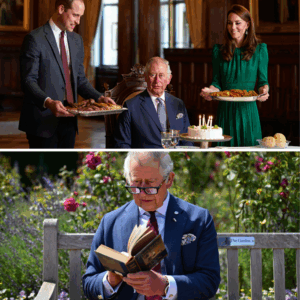In the gilded halls of power where secrets fester like untreated wounds, the saga of Jeffrey Epstein—a financier whose web of depravity ensnared the elite—has long tantalized the public with promises of revelation and fears of evasion. On November 19, 2025, President Donald Trump affixed his signature to the Epstein Files Transparency Act, a bipartisan legislative thunderbolt that compels the Justice Department to disgorge a trove of unclassified documents within 30 days. The move, announced via a terse Truth Social post amid a whirlwind of Saudi summits and domestic dust-ups, caps months of congressional arm-twisting and survivor advocacy, thrusting Attorney General Pam Bondi’s office into the crosshairs of expectation. At a stark midday presser in the DOJ’s marbled atrium, Bondi—her Florida-tough demeanor unyielding—pledged “maximum transparency,” vowing to shield victims while illuminating the “new information” that has reignited probes into Epstein’s enablers. Yet, as the December 19 deadline looms, whispers of redactions and ongoing investigations cast a pall over the promise, reminding a skeptical nation that truth, in Washington’s labyrinth, often arrives redacted and reluctant.
Epstein’s odyssey from Brooklyn striver to island impresario reads like a dark inversion of the American Dream, a tale of ascent fueled by shadowy alliances and unquenchable appetites. Born in 1953 to a middle-class Jewish family in Sea Gate, Coney Island, Jeffrey Edward Epstein dropped out of Cooper Union and NYU without a degree, yet parlayed charisma and connections into a perch at Bear Stearns by 1976. There, he honed a knack for the ultra-wealthy, jumping to Towers Financial in the ’80s before founding his own firm in 1987, ostensibly managing billions for clients like Les Wexner, the retail magnate behind Victoria’s Secret. Epstein’s lifestyle screamed excess: a Manhattan townhouse once owned by the Astors, a New Mexico ranch dubbed Zorro, and Little St. James—a 72-acre speck in the U.S. Virgin Islands locals rechristened “Pedophile Island” after spotting bikini-clad teens shuttled ashore via speedboat.
Beneath the veneer of philanthropy—donations to Harvard, schmoozing with Nobel laureates—lurked a predator’s calculus. Epstein’s operation preyed on vulnerability, recruiting girls as young as 14 through a pyramid of “massage therapists” who doubled as spotters at malls and schools. Cash incentives—$200 for a “session,” bonuses for referrals—dangled like lifelines to the broke and aspiring. Ghislaine Maxwell, the British socialite who became his paramour and procurer in the ’90s, lent aristocratic gloss: yacht parties on the Lady Ghislaine, introductions to Prince Andrew at Windsor, flights on the “Lolita Express,” a customized Boeing 727 logged with 1,000-plus trips ferrying the powerful to his haunts. Victims later described a ritual of degradation: arrivals at Epstein’s Palm Beach manse met with demands for topless “massages,” escalating to assaults filmed by hidden cameras for leverage. “It was a cult of control,” one survivor recounted in a 2024 deposition, her voice a hollow echo of shattered trust. Epstein’s genius lay in normalization—framing exploitation as mentorship, coercion as consent—while his black book ballooned with 1,500 entries: Bill Clinton, 26 flights; Alan Dershowitz, legal counsel; even a pre-2004 Trump, seven jaunts and a quip to reporters that Epstein’s tastes skewed “young.”
The facade crumbled in March 2005, when a 14-year-old’s tip to Palm Beach police unearthed a hornet’s nest: soiled massage tables, explicit photos, a safe of CDs labeled “Young [Name] + [Name].” Epstein’s 2008 plea—state charges of procuring a minor for prostitution—yielded a mockery of justice: 18 months, served in 12 with work release to his office, no federal sex-trafficking counts despite evidence of dozens victimized. Alexander Acosta, then-U.S. Attorney (later Trump’s Labor Secretary), inked the deal, later admitting Epstein “belonged to intelligence” in a 2019 aside that birthed conspiracies. Epstein’s 2019 rearrest on federal indictments—trafficking minors across state lines—promised reckoning, but his August 10 suicide in MCC’s “suicide watch” cell ignited fury: broken hyoid bone suggesting strangulation, guards asleep, cameras malfunctioning. Maxwell’s 2021 conviction on five counts—20 years for recruiting and grooming—offered partial vindication, but her trial’s sealed exhibits and the FBI’s July 2025 memo (“exhaustive review yields no further charges”) left survivors seething. Over 100,000 pages languish in DOJ vaults: flight manifests, victim statements, wire transfers tracing Epstein’s $600 million fortune to offshore shells.
The Transparency Act’s genesis traces to a rare congressional kumbaya, co-authored by libertarian Rep. Thomas Massie (R-KY) and progressive Rep. Ro Khanna (D-CA), who fused QAnon-tinged demands from Trump’s base with Democrats’ cries for Clinton accountability. Sparked by July leaks of Epstein’s emails fingering “Democrat Hoax” ties, the bill sailed through the House on November 18—427-1, lone dissenter Rep. Matt Gaetz (R-FL), whose own scandals orbit Epstein’s periphery. The Senate, via unanimous consent on November 19, fast-tracked it to Trump’s desk, dodging filibuster drama. Trump’s pivot was vintage opportunism: once resistant, decrying leaks as “Radical Left Lunatics,” he urged GOP passage on November 16 via Truth Social, framing it as a cudgel against foes. “We have nothing to hide,” he posted, eliding his own logs while spotlighting Clinton’s 26 flights and Larry Summers’ island soirees. By evening, flanked by Saudi Crown Prince Mohammed bin Salman in the Oval, Trump scrawled his name, tweeting: “Signed! Perhaps the truth about these Democrats… will soon be revealed.” Critics smell deflection: Trump’s Mar-a-Lago ban on Epstein post-2004 after an alleged underage advance, yet photos of them yukking it up in 2000 linger like indictments.
Bondi’s presser, mere hours prior, set the stage with prosecutorial steel. The former Florida AG—Trump’s 2024 pick, confirmed amid cheers from MAGA faithful—stood ramrod before a DOJ seal, her blonde bob unmoving as reporters lobbed queries. “We will continue to follow the law and encourage maximum transparency,” she intoned, nodding to the bill’s mandate for searchable PDFs of all unclassified Epstein material: grand jury transcripts denied in 2025 courts, Maxwell’s redacted exhibits, FBI surveillance from Little St. James. Over 33,000 pages already shared with Congress, she noted, but “new information” from Trump’s November 15 directive—to probe Clinton, Summers, and LinkedIn co-founder Reid Hoffman—has cracked open dormant leads. “Additional information,” Bondi hedged when pressed on July’s closure memo, her eyes flicking to Deputy AG Todd Blanche and FBI Director Kash Patel. The bill’s teeth: DOJ must notify bipartisan Hill leaders of any redactions, shielding victims’ identities, medical files, or “active investigations” that could “jeopardize national security.”
Skepticism swirls like Potomac fog. The “ongoing probe” carve-out—Epstein’s emails alleging Trump “knew about the girls” via Virginia Giuffre, who perished in 2025—could swallow swaths of files. Giuffre’s settled suit against Prince Andrew, stripped of titles, haunts Buckingham; Gates’ post-conviction meetings with Epstein chafe Silicon Valley. Bondi’s vow rings hollow to survivors like Rina Oh, who in a Substack exposé days prior branded Epstein’s anatomy a “deformed lemon,” fueling theories of his compensatory sadism. “Maximum transparency means no more shadows,” Oh urged, her words amplified by the Epstein Victims’ Compensation Program, which has funneled $150 million since 2021. Polls bear the ache: 70% of Americans, per a November Reuters/Ipsos survey—87% Democrats, 60% Republicans—suspect cover-ups, a bipartisan bruise from Epstein’s suicide-era distrust.
Trump’s embrace is laced with irony. Billed as “drain the swamp” redux, it burnishes his outsider sheen while burying Democrats under Clinton’s baggage—26 flights, island logs sans Secret Service. Yet leaks complicate: a 2008 Epstein email to staffers fumed at Trump’s silence on Giuffre’s “hours at my house with him,” dismissed by White House flack Karoline Leavitt as “fake narrative.” Trump’s own history—banning Epstein from Mar-a-Lago, tipping feds per his claims—clashes with 2002 praise: “Terrific guy… likes beautiful women, many on the younger side.” The bill’s exceptions echo Bondi’s pre-signature stance, fueling X-fueled conspiracies: “Trump signs, Bondi hides,” one viral thread posits, tallying 10,000 reposts. Rep. Khanna, in a post-passage floor speech, hailed the provision for congressional alerts on cuts, a bulwark against executive overreach.
For victims, the act is bittersweet catharsis. Groups like the National Center for Missing & Exploited Children, which aided Epstein probes, eye the files for patterns in elite impunity—Wexner’s $200 million “gift” to Epstein, unexplained; Dershowitz’s denials amid Giuffre accusations. Maxwell, from her Tallahassee cell, appeals her sentence, her lawyers decrying “incomplete” evidence. As December 19 nears, DOJ gears grind: digitizing 300 gigabytes, scrubbing sensitivities, prepping a portal for public perusal. Bondi’s pledge—to “protect victims while pursuing justice”—hangs in balance, her “new information” a tantalizing hook. Will it unearth co-conspirators, or merely recycle redactions?
In a capital wearied by scandals—from Watergate’s tapes to Mueller’s memos—Epstein’s files promise a reckoning overdue. Trump’s pen, Bondi’s words: tools for truth or shields for the shielded? As Thanksgiving tables groan under turkey and tension, survivors wait not for feasts, but facts. The clock ticks toward transparency’s dawn—or another dusk of deferral. In Epstein’s empire of illusions, where power preys and privilege persists, one verity endures: sunlight, however filtered, scorches the hidden. For the girls who survived the island’s maw, December’s drop could be deliverance—or the echo of doors forever locked.



